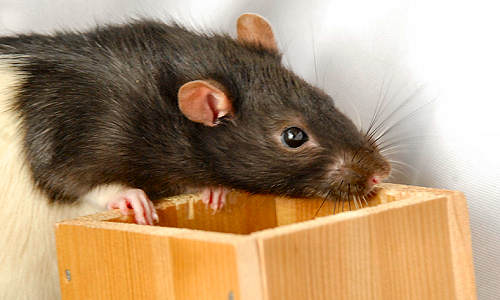Team of researchers searched for the foundations of manic-depressive disorder in about 24,000 people
First on top of the world and then in the depths of despair – this is what the extreme mood changes for people with bipolar disorder are like. Under the direction of scientists from the University of Bonn Hospital, the Central Institute of Mental Health of Mannheim and the University of Basel Hospital, an international collaboration of researchers discovered two new gene regions which are connected with the prevalent disease. In addition, they were able to confirm three additional suspect genes. In this unparalleled worldwide study, the scientists are utilizing unprecedented numbers of patients. The results are now being published in the renowned journal “Nature Communications”.
Throughout the course of their lives, about one percent of the population suffers from bipolar disorder, also known as manic-depressive disorder. The patients undergo a veritable rollercoaster of emotions: During extreme shifts, they experience manic phases with delusions of grandeur, increased drive and a decreased need for sleep as well as depressive episodes with a severely depressed mood to the point of suicidal thoughts. The causes of the disease are not yet fully understood, however in addition to psychosocial triggers, genetic factors play a large role. “There is no one gene that has a significant effect on the development of bipolar disorder,” says Prof. Dr. Markus M. Nöthen, Director of the Institute of Human Genetics of the University of Bonn Hospital. “Many different genes are evidently involved and these genes work together with environmental factors in a complex way.”
Scale of the investigation is unparalleled worldwide
In recent years, scientists at the Institute of Human Genetics were already involved in decoding several genes associated with bipolar disorder. The researchers working with Prof. Dr. Marcella Rietschel from the Central Institute of Mental Health of Mannheim, Prof. Dr. Markus M. Nöthen from the University of Bonn Hospital and Prof. Dr. Sven Cichon from the University of Basel Hospital are now using unprecedented numbers of patients in an international research collaboration: New genetic data from 2266 patients with manic-depressive disorder and 5028 control persons were obtained, merged with existing data sets and analyzed together. In total, data on the genetic material of 9747 patients were compared with data from 14,278 healthy persons. “The investigation of the genetic foundations of bipolar disorder on this scale is unique worldwide to date,” says Prof. Rietschel from the Central Institute of Mental Health of Mannheim.
The search for genes involved in manic-depressive disorder is like looking for a needle in a haystack. “The contributions of individual genes are so minor that they normally cannot be identified in the ‘background noise’ of genetic differences,” explains Prof. Cichon from the University of Basel Hospital. Only when the DNA from very large numbers of patients with bipolar disorder are compared to the genetic material from an equally large number of healthy persons can differences be confirmed statistically. Such suspect regions which indicate a disease are known by scientists as candidate genes.
Two new gene regions discovered and three known gene regions confirmed
Using automated analysis methods, the researchers recorded about 2.3 million different regions in the genetic material of patients and comparators, respectively. The subsequent evaluation using biostatistical methods revealed a total of five risk regions on the DNA associated with bipolar disorder. Two of these regions were newly discovered: The gene “ADCY2” on chromosome five and the so-called “MIR2113-POU3F2” region on chromosome six. The risk regions “ANK3”, “ODZ4” and “TRANK1” have already been described in prior studies. “These gene regions were, however, statistically better confirmed in our current investigation – the connection with bipolar disorder has now become even clearer,” says Prof. Nöthen.
The researchers are particularly interested in the newly discovered gene region “ADCY2”. It codes an enzyme which is involved in the conduction of signals into nerve cells. “This fits very well with observations that the signal transfer in certain regions of the brain is impaired in patients with bipolar disorder,” explains the human geneticist of the University of Bonn Hospital. With their search for genetic regions, the scientists are gradually clarifying the causes of manic-depressive disorder. “Only when we know the biological foundations of this disease can be also identify starting points for new therapies,” says Prof. Nöthen.
The research is being sponsored by the Federal Ministry for Education and Research (BMBF) within the scope of the National Genome Research Network plus (NGFNplus) in the Integrated Genome Research Network MooDS (Systematic Investigation of the Molecular Causes of Major Mood Disorders and Schizophrenia) and through the Integrated Network IntegraMent (Integrated Understanding of Causes and Mechanisms in Mental Disorders), under the auspices of the e:Med Programme.
Story Source:
The above story is based on materials provided by Universität Bonn.





